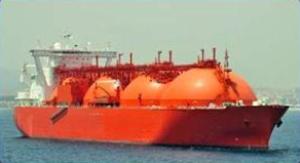Omniseal Solutions continues to offer reliable sealing solutions such as their OmniSeal® Raco™ spring-energized seal for offshore LNG (liquefied natural gas) transfer, a market that is rapidly expanding as a worldwide commodity in which new methods of safe, efficient offshore transfers are being developed to meet current demand.
According to BPs Energy Outlook 2030, the market for LNG is anticipated to grow at the rate of 4.4 percent per annum with above average growth expected across Europe and Asia. By 2025, natural gas will have overtaken coal as the second most consumed fuel after oil. Consequently, more and more companies are attempting to participate in this rapidly growing market with different offshore LNG transfer concepts and designs for tandem and side-by-side configurations. Much of the technological solutions for offshore LNG offloading proposed so far are based on side-by-side transfer with rigid loading arms or flexible hoses.

LNG is a natural gas (predominantly methane, CH4) that has been converted to liquid form for ease of storage or transport and takes up about 1/600th the volume of natural gas in the gaseous state. Because natural gas is a fuel and a combustible substance, to ensure safe and reliable operation, particular measures have been taken in the design, construction and operation of LNG facilities. Seals have been identified as one of the critical components to ensure safe and reliable offshore LNG transfer. Standard sealing solutions are unable to withstand natural gas liquefaction conditions at -162°C (-260°F); however, the Seals Group’s unique OmniSeal® Raco™ spring-energized seal offers high load and resilience at cryogenic temperature and in static conditions or slow angular movement. Their spring-energized seal is manufactured from proprietary Fluoroloy® polymer materials energized by a high load Raco™ spring with continuous spring contact along the entire sealing lip.
As a result of close collaboration with key partners in the Oil & Gas industry over many years, the Seals Group has been able to progressively increase the performance of its OmniSeal® Raco™ seal with improved reliability, ability to cope with big variations of groove depth and resistance to temperature cycling. Qualified in several revolutionary concepts of offshore LNG transfer, these custom-designed OmniSeal® Raco™ spring-energized seals are commonly used in dynamic conditions, i.e. swivel joints in the case of articulated loading arms or in static conditions in emergency release systems and couplers for cryogenic floating hoses.
Currently, there are 26 onshore export or liquefaction facilities worldwide for natural gas; however, a large number of natural gas fields in remote offshore locations are planned to be exploited. Until a few years ago, the challenge to develop these resources was not accepted and no technology was available. As attitudes have changed, today several Floating Liquefied Natural Gas (FLNG) solutions have been developed. The first investments in FLNGs have been made by Shell and Petronas for projects in Australia and Malaysia. Despite only three vessels receiving final decision to proceed, there are also a large number of designs at different stages of project development which should be sanctioned over the next three years. As demands on LNG supplies increase with the anticipation of maintaining this trend for the next few decades, Omniseal Solutions is committed to providing sealing solutions that meet the operating challenges of their customers and the demanding conditions in which they work.
To find out more about OmniSeal® Raco™ or Omniseal Solutions’s other sealing and polymer solutions, please visit www.seals.saint-gobain.com.